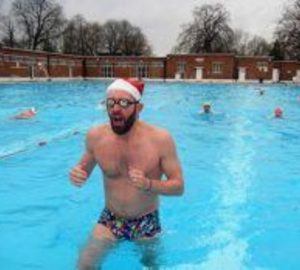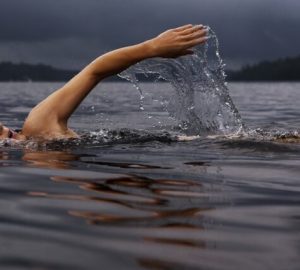Is the UK at risk of an inter-generational swimming crisis? – And what can be done about it?
We are at risk of condemning a generation of school children to missing out on the delights and benefits of swimming, says Richard Royal.
As I snorkelled alongside brightly coloured fish in the warm sea on a recent holiday, I pondered how lucky I was to have the often taken-for-granted skill of swimming, and how tragic that so many people are unable to experience not only this fantastic sport but also many other activities that are made possible through it.
We have too far many non-swimmers in the UK and this also has very dangerous consequences. Drowning is the third most common cause of accidental death amongst children in England, with incidents increasing by a shocking 35% in 2012. In the same year, a report by the Amateur Swimming Association (ASA) revealed that a third of children – 200,000 each year – cannot swim by the time they leave primary school.
The national curriculum recommends that state schools provide pupils with 22 hours of swimming per year in an effort to secure the minimum standard of an 11 year old being able to swim the length of an average pool (25m) unaided. Yet the ASA report disclosed that the average time spent in a pool is a measly eight hours per year and that 51% of pupils leaving primary school could not accomplish the 25m target.
To most accomplished swimmers these figures are horrifying. After all, 25m is not a long distance and being able to swim this in the security of a swimming pool would rarely equate to safety in a dangerous and unforeseen scenario in open water. It is no wonder that 40% of parents don’t believe their child could swim to safety if in trouble.
With 20% of adults being unable to swim themselves, they are unlikely to be able to teach or encourage their children to do so, whilst lack of provision in school creates a natural imbalance towards those who can afford the luxury of private lessons, potentially leading to an inter-generational deficiency amongst particular sectors of society.
So why aren’t we investing more time, money and effort in teaching children the only sport that also doubles as a lifesaving skill?
Having it within the national curriculum clearly isn’t enough, as 60% of parents admit that their child isn’t currently receiving swimming lessons in school and more than a third of children – some 75,000 each year – leave primary school having never been offered the opportunity.
Neither Ofsted nor local authorities seem to keep track of participation and the government is often too busy reinforcing traditional subjects to crack the whip. Educational institutions are under all sorts of pressures, not least budgetary, and without it being properly enforced, swimming lessons simply slip down the priority scale.
Unfortunately, despite both the government and community-minded private companies pouring money into sport for young people in recent years, any funds that are not specifically designated for swimming tend to go towards other sports. Schools face a very real issue of balancing an activity which requires expensive facilities but is not considered a priority by those who hold the purse strings and make the decisions within educational institutions, councils or governments. Far too often those bodies tasked with resolving these problems show all the competence of a pair of leaky goggles.
Inevitably due to the laws of supply and demand, the more pool closures and takeovers we see, the higher the cost of existing pools will become – a problem not unique to schools but also experienced by swimming clubs throughout the country.
Very few schools and colleges have their own pool and most of those that do muddle along in outdated facilities. With cash-strapped local authorities often ill-equipped to manage such facilities, it often falls to luxury hotels and private health clubs to provide the community with – and hold schools and clubs hostage for – access to a decent body of contained chlorinated water. My own club, West London Penguins, has faced this issue recently, with Virgin Active doubling the cost of lane hire overnight without feasible justification.
Without wishing to push an already stretched system too far, I would also argue the importance of basic first aid and cardiopulmonary resuscitation (CPR) techniques being taught in secondary schools.
Like many swimmers, I spent a portion of my early adult life working as a lifeguard. I was lucky enough to never have to put this into practice in a professional setting, but I have plenty of colleagues that have saved lives, and I’ve witnessed potentially dangerous incidents in my personal life which I’ve been able to handle more effectively having had this background.
How many more lives could be saved if the same prioritisation was given to swimming, first aid and lifesaving skills as is currently given to trigonometry, analysing Shakespeare and memorising the order of the periodic table?
I am surprised that these issues aren’t pushed more in parliament. There are a handful of swimmers sat on the famous green benches, but seemingly none of them have thought to establish an all party parliamentary group (APPG) – the committees which seek to discuss and lobby on particular areas of interest – dedicated to swimming. Meanwhile, there are APPGs for American football, opera and folk arts.
The reality is that faced with very few carrots and a lot of other sticks, schools and councils face a multitude of reasons not to prioritise an activity which has numerous benefits for the individual and for society as a whole. Unless all institutions get their rubber ducks in a row, we’ll soon find a privileged few able to enjoy the delights of activities like snorkelling on holidays whilst increasing numbers sit nervously on the side-lines.
How to improve the situation
- Ofsted to monitor and government to fully enforce curriculum requirements and penalise non-compliance
- Government-backed interest-free loans for refurbishing and protecting existing school pools
- Basic first aid and lifesaving skills incorporated into secondary schools’ PE or citizenship classes
- Local authorities to enforce discounted use of pool lanes by local schools and clubs as a condition of planning permission/sale of council pools to private companies
- For the provision of leisure facilities to be made a statutory service for local authorities
- MPs to create an all party parliamentary group dedicated to swimming






